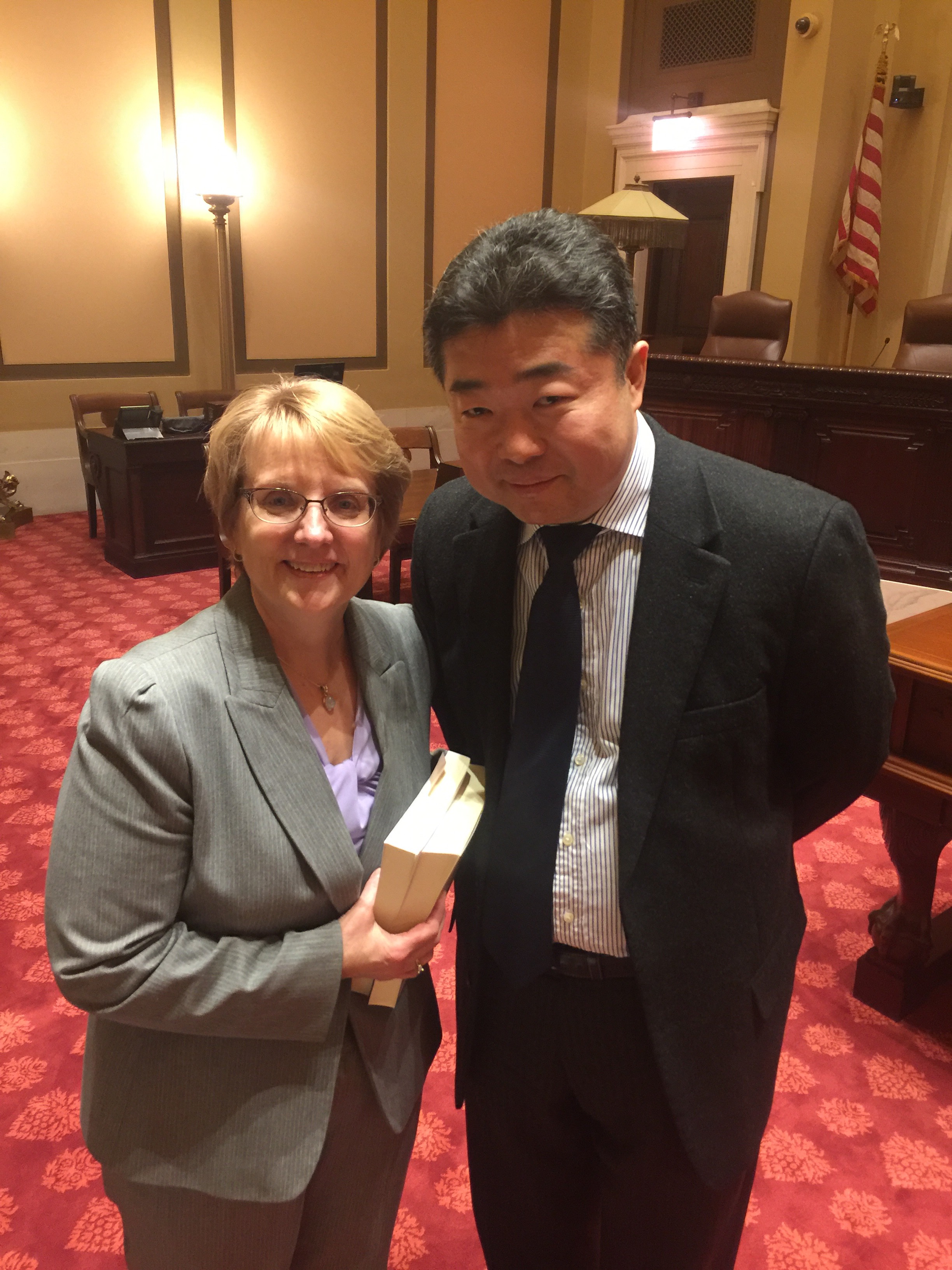Civics 101: The Judicial Branch, with Minnesota State Supreme Court Chief Justice Lorie Gildea and Chang Wang

By day, Chief Researcher Chang Wang is a hard-working Thomson Reuters employee. But by night, he’s an attorney, law school and college professor, author and budding actor (he’s the serious Chinese guy wearing the dark suits).
Recently, Wang brought his students from two different local universities to a private meeting with Minnesota State Supreme Court Chief Justice Lorie Gildea for a memorable lecture on the judicial branch, the balance of power and the unique role of a Supreme Court Chief Justice.
Appointed as Associate Justice on January 11, 2006, Gildea was appointed Chief Justice on July 1, 2010, by then-Governor Tim Pawlenty, and then stood for election and won in 2012. One week a month, she told the class, the Minnesota Supreme Court again hears cases in the State Capitol Building’s newly restored courtroom, where she met with the class. Cases are also heard in the Minnesota Judicial Center.
Chief Justice Gildea discussed the separation of powers and her unique duties, from overseeing statewide judicial committees to testifying before Minnesota legislators about funding for the judicial branch. She also discussed the varied paths that cases take to find their way to her courtroom and generously answered questions from the students.
At the end of the meeting, Wang presented Chief Justice Gildea with a copy of his new publication Constitutional Law: Lectures, Cases, and Resources (Thomson Reuters and China University of Political Science and Law Press). Wang’s two-volume, 1200-page textbook picks up where his first bilingual legal research book, Legal Research in American Law, left off. The set includes annotated case briefs of 39 U.S. Supreme Court cases, 25 lectures from Wang on Constitutional Law and resources to research Constitutional Law. Perhaps most relevant to this meeting, the textbook includes the first-ever Chinese translation of the Constitution of the State of Minnesota, as well as Chinese translations of Magna Carta, the United States Constitution, and the Constitution of the Commonwealth of Massachusetts (the oldest constitution in the United States). 
According to Wang, it was an especially appropriate learning environment for the subject matter and a masters-level course for these undergrads in the constitutional powers granted by the judiciary and how they manifest in everyday life.
“It was wonderful of Chief Justice Gildea to so generously share her experiences as a lawyer and Chief Justice with these students,” he said. “These students are bright, and I hope that some of them were inspired enough by her words to take a serious look at the practice of law. We’ll always need more good lawyers.”
And good authors, and good professors, and good actors.